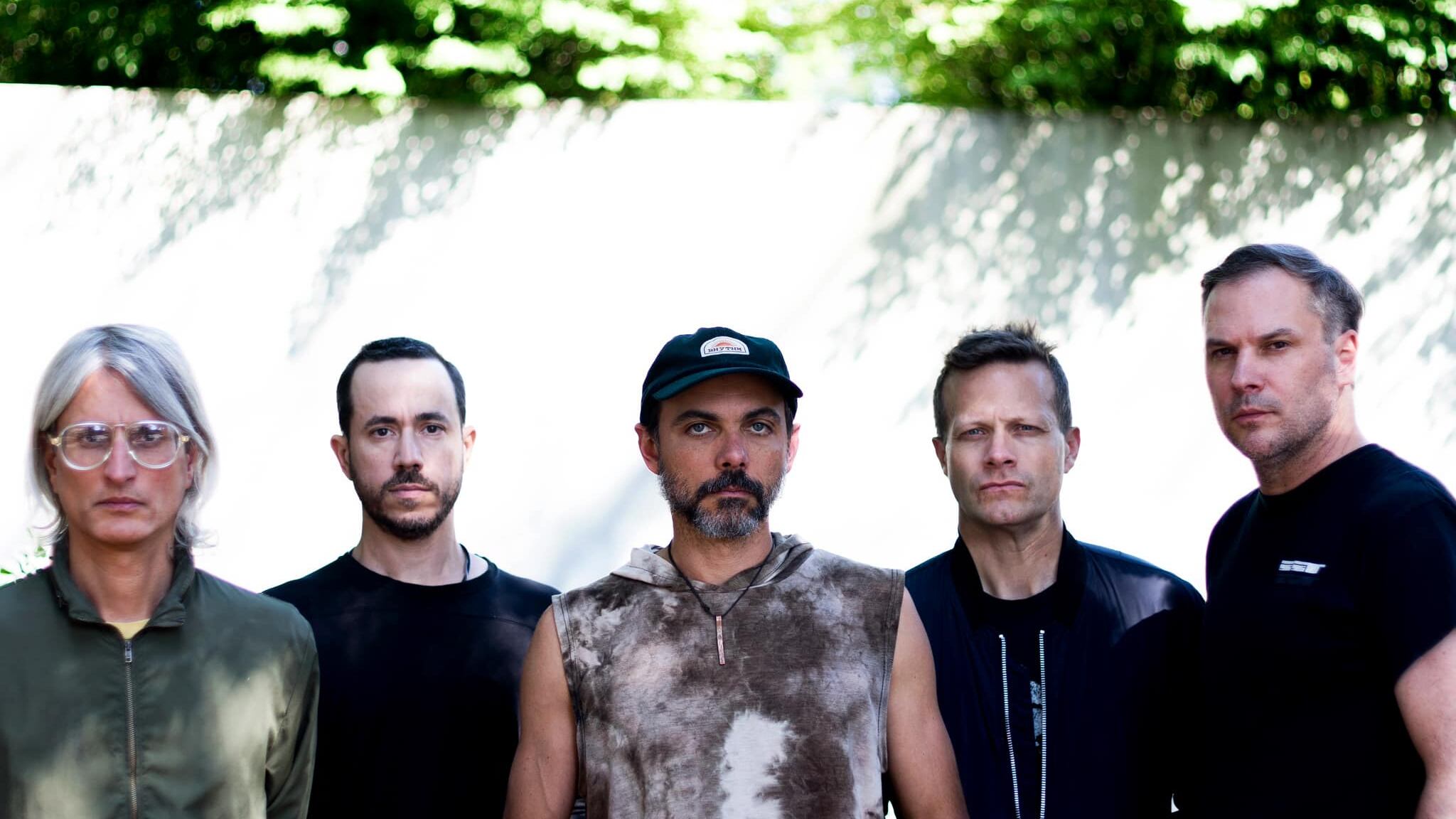Eighties revivalism is all the rage right now, from synth pop to Stranger Things. But you can count Portland rock band Grails out of the conversation.
Founder, drummer and guitarist Emil Amos is surprised that critics have compared his band’s new record Anches En Maat to that glossiest and greediest of American decades, which he describes as generally “too cut and dry” for his tastes. To him, Maat more closely reflects the spirit of the ‘70s, the decade in which “the maggots and entrails of the culture lie.”
Listening to the seven grand, sweeping instrumentals on Anches En Maat, it’s not hard to think of the baroque-soul opuses of Isaac Hayes, the thunder of Get Up With It-era Miles Davis, and the general spirit of a time when musicians around the world were hurtling headfirst into the expansive and expressive possibilities of electric guitar music. And yet, according to guitarist Ilyas Ahmed, nothing the band does is “deliberate.”
“It’s not like we’re genre-hopping collage artists or anything where it’s like, let’s make something that sounds like the Knight Rider soundtrack or something,” says Ahmed, the only member of the band who currently lives in Portland.
“We didn’t know we were going,” adds Amos, who lives in North Carolina. “That’s the beauty of art, and that’s why we still care. We’re not going to stop dreaming, and there’s something about that that’s totally dangerous.”
Amos and guitarist Alex Hall are the two remaining founders of the band, which has released eight albums since 2003. Though prolific in their early years, the band has worked at a slower pace as of late. Maat is their first album since 2017′s Chalice Hymnal, which had been their first since 2011′s Deep Politics.
Amos and Ahmed first met while backing Damo Suzuki, the wild-card singer known for fronting the legendary German rock band Can. However, the current lineup of Grails—which is scattered across the U.S. and added Ahmed and Pittsburgh percussionist A.E. Paterra in the years since Chalice Hymnal—first convened without even having met or played together as a complete unit.
“The first time this lineup played in a room, there was chemistry,” says Ahmed. “We wrote new music the first day we played together. I think that speaks to a collective experience that at the time was unspoken, maybe. We were all coming at music from the same sort of broken, desperate characters that we are a little bit.”
Anches En Maat is the first album the band has recorded together in one room since 2008′s Doomsdayer’s Holiday. The group recorded the initial tracks for it in 2019, right before the COVID-19 pandemic shut down the world of live music and in-person recording and left the band’s future uncertain.
According to Amos, Grails was conceived at a time when the idea of “getting in the van and creating a legend” was a more tangible prospect for young bands than this current, historically terrible time to be a touring and recording music group. That idealism has fluctuated over the ensuing decades, but the pandemic was a historic low point, when “the whole machine broke down extensively and we had to rebuild it with what idealism there was left, which was almost none.”
“Everyone’s kind of in this ultra-despair mode right now about what it means to be a musician or being like a working musician or a writer and all these things,” Ahmed says. “We’re still kind of allowed to do our thing because we’ve put so much time and energy into feeding our identity and making it stronger that it never boiled over.”
Once live music began to open back up, there was only one thing to do: fly to Portland and save the band. Grails performed its first show since the pandemic last July at Lúnasa Cascadia, a five-day campout in the woods west of Portland. Though a neo-pagan festival celebrating the beginning of the harvest season seems a strange place for a critically acclaimed underground rock band to reconvene, the gig was crucial to their rediscovery of their sound and identity following the pandemic.
“That show and all the practicing, it basically was the first day of the rest of our lives as a band,” Amos says. “After that, everybody got on their red-eyes and flew off, and all of a sudden we had a band again.”
The group subsequently embarked on a European Union tour throughout October of this year with support from James Blackshaw, an English acoustic guitarist who recently returned to recording and performing after a hiatus of nearly a decade.
“We didn’t know what was going to happen,” Amos says. “We didn’t know if we were going to get there and have a disaster and be financially ruined. But it was a total success in a spiritual category that I think is more dramatic because of the pandemic and how everything broke down and our idealism broke down.”
Anches En Maat came out Sept. 22 on Brooklyn label Temporary Residence Ltd. The band sees it as a sort of reset, a clean slate, and is excited about the possibilities to come. “We could cut anything and make any kind of follow-up record,” Amos says. “The band could go anywhere. We could do a modern broken-electronics record. We could make a Barry White record. We could do anything now.” Just don’t expect them to make anything that sounds like the ‘80s.

